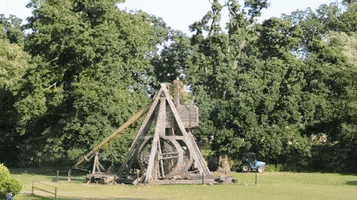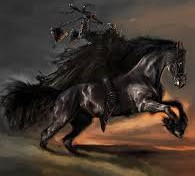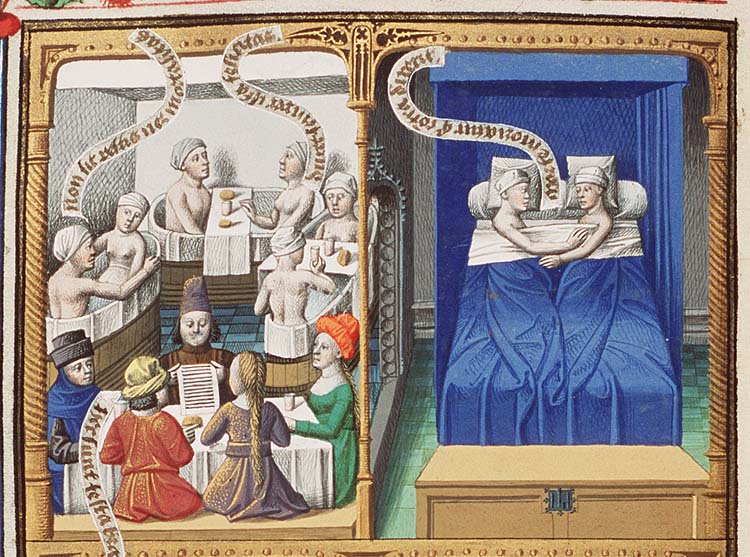Yes, any time now, we'll be paying tribute to arabs, as they ship our children off to the labor camps.Speaker to Animals wrote:Interesting comparison. Something like that is coming, except it won't be pagans this time but jihadis.
ITT post property price in your area MUSLIM EDITION
-
SuburbanFarmer

- Posts: 25438
- Joined: Wed Nov 30, 2016 6:50 am
- Location: Ohio
Re: ITT post property price (generally) in your area
-
Speaker to Animals

- Posts: 38685
- Joined: Wed Nov 30, 2016 5:59 pm
Re: ITT post property price (generally) in your area
They already effectively have sharia law zones in some major European cities.
-
Montegriffo

- Posts: 18811
- Joined: Wed Nov 30, 2016 7:14 am
Re: ITT post property price (generally) in your area
Yeah, what did the Vikings ever do for us? Apart from advances in shipbuilding and navigation, the first national assembly or parliament in Europe, nearly 50% of the English language, ombudsmen, rights for women such as divorce, combs, bathing, tweezers,razors, Dublin, discovery of the new world, the magnetic compass,skiing, the warp weighted loom. But apart from that what did the Vikings do for us....?
Death, death, to the IDF.


-
Alexander PhiAlipson

- Posts: 1411
- Joined: Thu Jan 05, 2017 2:29 pm
Re: ITT post property price (generally) in your area
Nearly 50%???
Is that Viking math?
First parliament in Europe:
https://en.wikipedia.org/wiki/Witenagemot
Viking compass, imported from China:

A comb is a toothed device used for styling, cleaning and managing hair and scalp. Combs are among the oldest tools found by archaeologists,[1] having been discovered in very refined forms from settlements dating back to 5,000 years ago in Persia.
Bathing--funny--I once visited a city named Bath, famous for its baths, in England! It was founded by the Romans--centuriers before the Vikings came along.
Is that Viking math?
First parliament in Europe:
https://en.wikipedia.org/wiki/Witenagemot
Viking compass, imported from China:

A comb is a toothed device used for styling, cleaning and managing hair and scalp. Combs are among the oldest tools found by archaeologists,[1] having been discovered in very refined forms from settlements dating back to 5,000 years ago in Persia.
Bathing--funny--I once visited a city named Bath, famous for its baths, in England! It was founded by the Romans--centuriers before the Vikings came along.
Last edited by Alexander PhiAlipson on Tue Jun 13, 2017 12:07 pm, edited 4 times in total.
"She had yellow hair and she walked funny and she made a noise like... O my God, please don't kill me! "
-
TheReal_ND

- Posts: 26048
- Joined: Wed Nov 30, 2016 6:23 pm
Re: ITT post property price (generally) in your area
At this rate the Pakistanis and Somalis will take you to the stars.Montegriffo wrote:Yeah, what did the Vikings ever do for us? Apart from advances in shipbuilding and navigation, the first national assembly or parliament in Europe, nearly 50% of the English language, ombudsmen, rights for women such as divorce, combs, bathing, tweezers,razors, Dublin, discovery of the new world, the magnetic compass,skiing, the warp weighted loom. But apart from that what did the Vikings do for us....?
-
Montegriffo

- Posts: 18811
- Joined: Wed Nov 30, 2016 7:14 am
Re: ITT post property price (generally) in your area
Ok, I should have written 50% of English place names.
However
However
http://www.mydanishroots.com/history-cu ... glish.htmlIt is estimated that of the 5,000 basic words in English, as many as 20 percent are so-called loan words from the Old Norse language (ON) which was spoken throughout Scandinavia (Denmark, Norway and Sweden) as well as in Scandinavian settlements and colonies. The Old Norse language also had a significant impact on syntax and grammar of the Old English language, and thereby also modern English.
Death, death, to the IDF.


-
Montegriffo

- Posts: 18811
- Joined: Wed Nov 30, 2016 7:14 am
Re: ITT post property price (generally) in your area

So you can add metrosexuals to the list.Bristled combs, often made from the antlers of red deer or other animals they killed, are one of the objects most commonly found in Viking graves. In fact, though comb-like devices existed in other cultures around the world, Vikings are often given credit for inventing the comb as the Western world knows it today. Tweezers, razors and ear spoons (for scooping out wax) are among the other grooming objects turned up in excavations of Viking burial sites, proving that even longhaired, bearded Viking warriors took their personal grooming very seriously.
http://www.history.com/news/history-lis ... he-vikings
Death, death, to the IDF.


-
Speaker to Animals

- Posts: 38685
- Joined: Wed Nov 30, 2016 5:59 pm
Re: ITT post property price (generally) in your area

Medieval bathhouses in England...
-
Montegriffo

- Posts: 18811
- Joined: Wed Nov 30, 2016 7:14 am
Re: ITT post property price (generally) in your area
http://www.skwirk.com/p-c_s-14_u-175_t- ... iking-lifeDespite the Viking Age ending over nine centuries ago, the legacy of the Norse civilisation is still visible today. Law and democracy are two ideals which were evident in Viking society. The Viking ' Althing' was thought to be the first national assembly in Europe. The Althing had the power of a parliament, which meant that it could make laws. It also had the power of a court of law in which those found guilty could be punished for their crimes. All freemen took part in this national parliament. Despite the influence of the Things declining, as the power of the kings grew, the Viking Althing set the way for a more democratic future.
Death, death, to the IDF.


-
Montegriffo

- Posts: 18811
- Joined: Wed Nov 30, 2016 7:14 am
Re: ITT post property price (generally) in your area
''What did the Vikings do for us'' I said, not what were they the first to use.Alexander PhiAlipson wrote:Nearly 50%???
Is that Viking math?
First parliament in Europe:
https://en.wikipedia.org/wiki/Witenagemot
Viking compass, imported from China:
A comb is a toothed device used for styling, cleaning and managing hair and scalp. Combs are among the oldest tools found by archaeologists,[1] having been discovered in very refined forms from settlements dating back to 5,000 years ago in Persia.
Bathing--funny--I once visited a city named Bath, famous for its baths, in England! It was founded by the Romans--centuriers before the Vikings came along.
Death, death, to the IDF.

